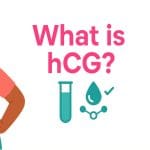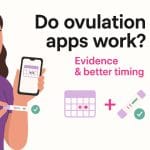Daily habits such as nutrition, movement, sleep, stress and substance use can nudge fertility up or down. This page walks through the main lifestyle factors and simple targets you can discuss with a clinician. If you like working with numbers, you can later use tools such as the Advanced Pregnancy Chance Calculator, the Ovulation Calculator or the One Time Pregnancy Calculator to see how changes might affect an estimated chance.
Key lifestyle levers (and practical targets)
Nutrition
- Base meals on plants + protein: vegetables and fruit, legumes, whole grains, nuts and seeds, lean proteins.
- Aim for a steady plate pattern to support hormones and body composition.
Movement
- Most people: about 150 to 300 minutes per week of moderate activity plus two strength sessions.
- Athletes: if cycles are irregular, dial back intensity and increase energy intake.
Sleep
- Target 7 to 9 hours, regular sleep and wake times, and some light and screen management before bed.
Stress
- Pick a simple daily practice such as walks, breathing, mindfulness or journaling. Consistency matters more than complexity.
Substances and workload
- Smoking or vaping: quitting helps fertility and pregnancy outcomes.
- Alcohol: consider reducing, especially during the fertile window.
- Work hours: if long hours reduce sleep or exercise, protect one small non negotiable such as a 20 minute walk.
Fast habit checklist
- 🌿 Two or more cups of vegetables today
- 🚶 At least 20 minutes of movement
- 😴 Seven or more hours of sleep planned
- 🧘 Five minutes of stress relief
- 🚭 No nicotine today
- 🍺 Alcohol: none or minimal, especially near ovulation
Your checklist does not need to be perfect. Small consistent wins are what move the average.
After a few weeks with new habits, you can use the Advanced Pregnancy Chance Calculator to see how your estimated chance per cycle looks with your current lifestyle.
FAQs
Can heavy exercise hurt fertility?
How much does sleep matter?
Does alcohol meaningfully change my odds?
Should I change everything at once?
Educational content only; not medical advice. For personalised guidance, consult a qualified clinician.
Last reviewed:



